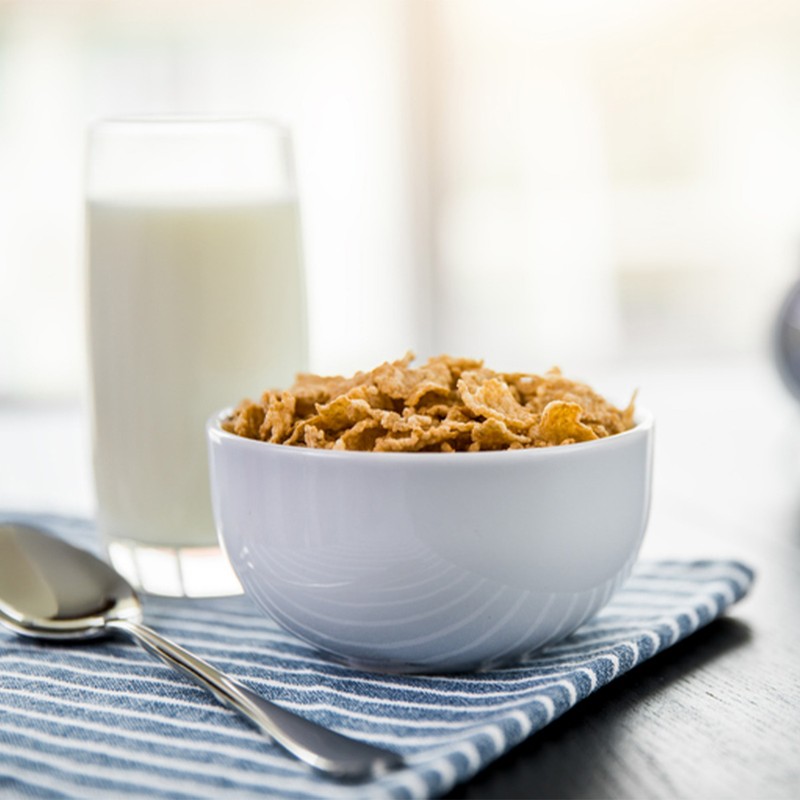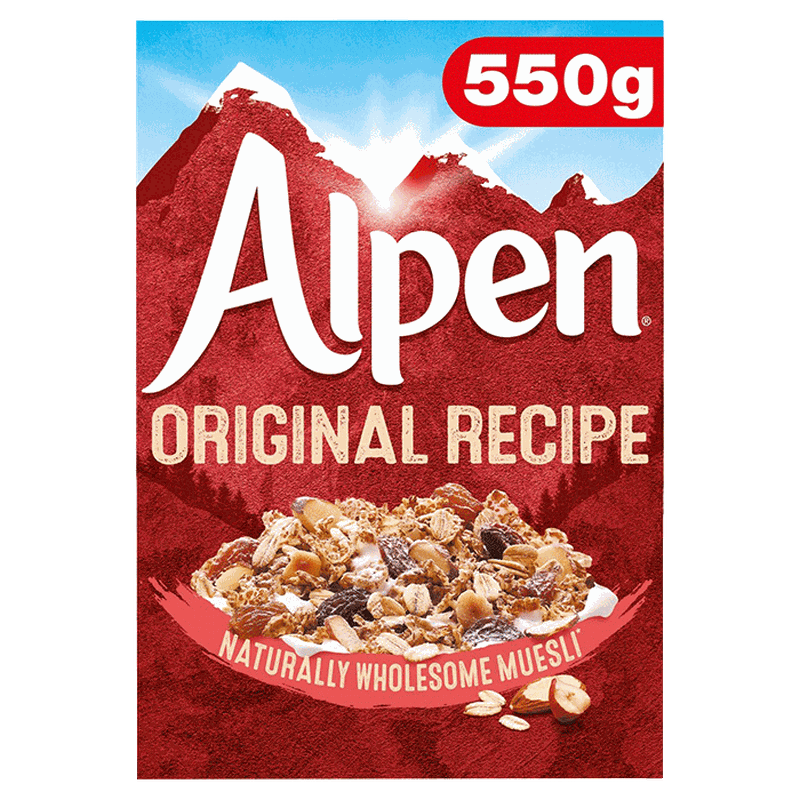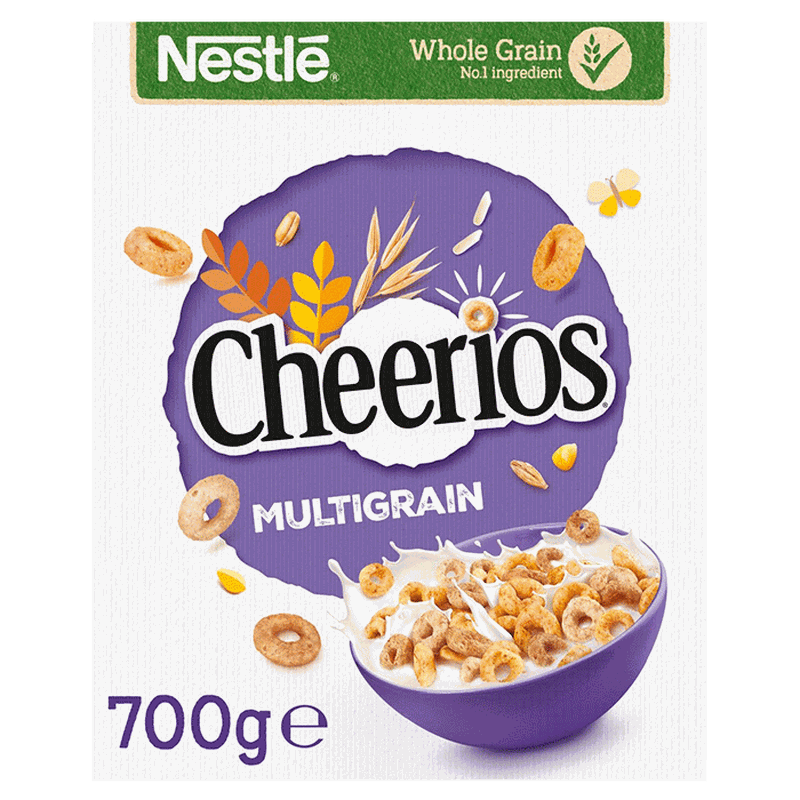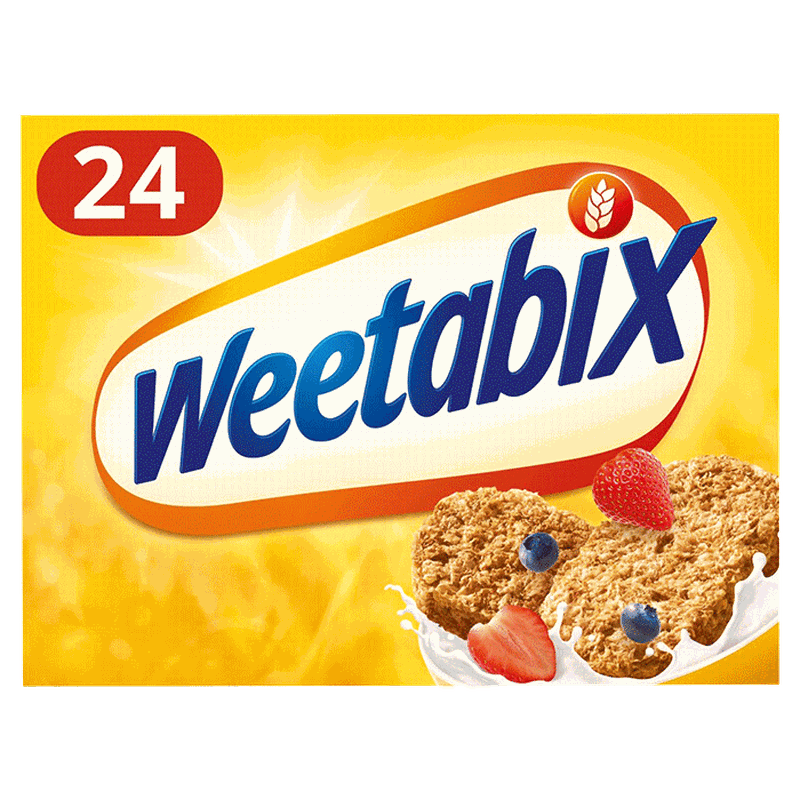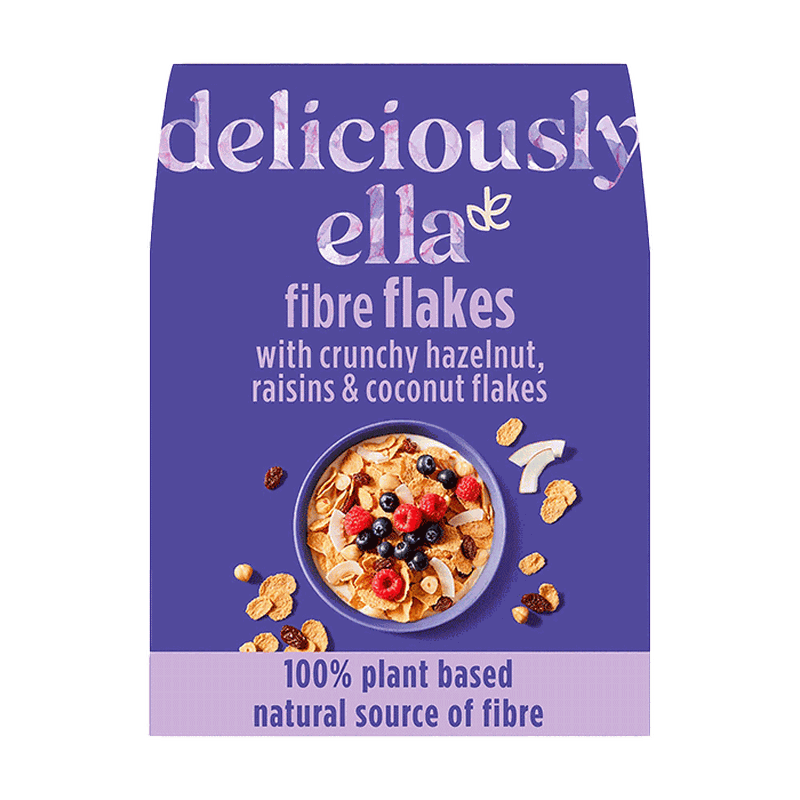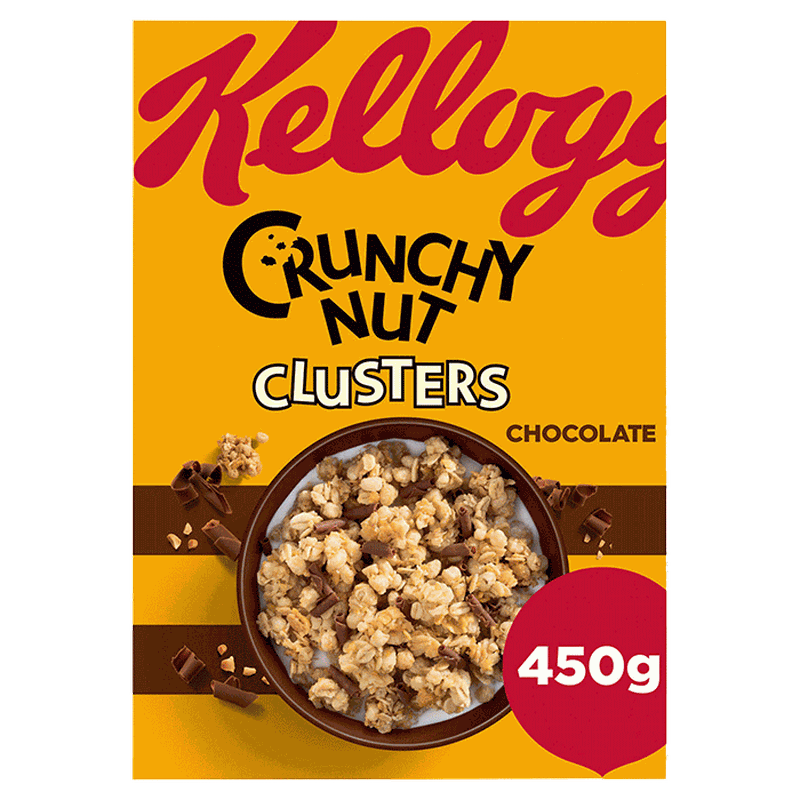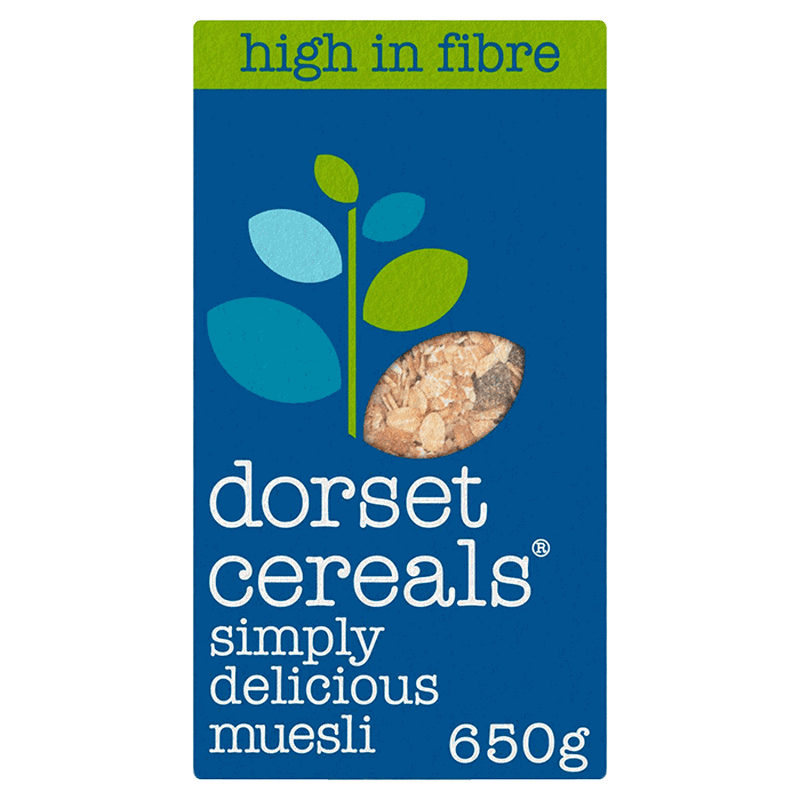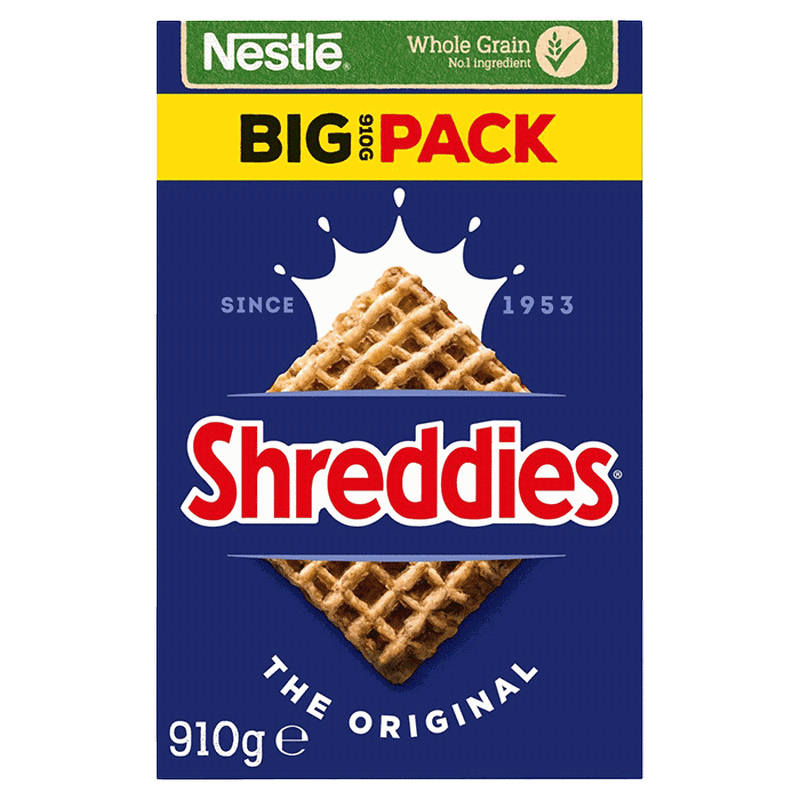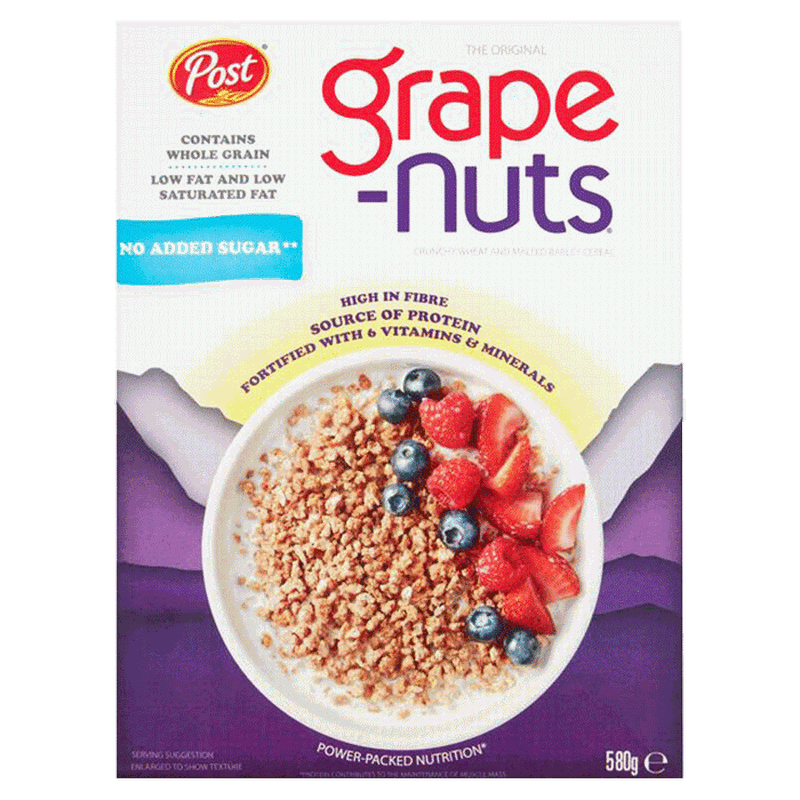A Nutritionist’s Guide To Cereal
Alpen, £2.70
This iconic Swiss muesli has been a bestseller in the UK for decades. High in fibre and low in saturated fat, it’s a decent breakfast option, says nutritionist Rob Hobson. “With a variety of nuts, fruits and oats, it offers a wide range of nutrients, although it does contain added sugar, so keep an eye on portion sizes. However, with minimal salt and 3.5g of fibre per serving, it’s not a bad way to start the day.”
RATING: 7/10
Available at Tesco.com
Multigrain Cheerios, £3.50
With 115 calories and 1g of fat per serving, this cereal is made with five types of wholegrain and fortified with nine vitamins and minerals. “Not every cereal is fortified, so this is a good option if your diet isn’t as good as it should be. These include B vitamins, vitamin C and iron,” Rob adds. “However, Cheerios contain less fibre than other cereals, so probably won’t keep you full for long.” Nutritionist Rosie Millen is more scathing about the ingredients: “This contains sugar syrup – it’s definitely not the most healthy way to start the day.”
RATING: 6/10
Available at Tesco.com
Weetabix, £3
“They’re low in fat and sugar, with just one third of a teaspoon per two biscuits,” says Rob. “As Weetabix is made from wholewheat, it’s a great source of fibre, and it’s also fortified with B vitamins and iron, which can help ward off tiredness and fatigue. It’s not the most exciting cereal, but you can jazz it up with chopped fruit and nuts.” Just steer clear if you struggle to digest wheat, says Rosie. “When you have Weetabix, you’re essentially having a bowl of wheat with added sugar, which can cause digestive problems.”
RATING: 8/10
Available at Sainsburys.co.uk
Deliciously Ella Fibre Flakes, £3
Wellness authority Ella Mills’s product range has some decent breakfast options, and this cereal offers a good mix of wholegrains, dried fruit and nuts, which offer a range of nutrients. “However, it is higher in sugar than some other muesli-type cereals (nearly 10g of sugar per serving), so bear this in mind if sugar is something you’re conscious of,” says Rob. “When looking at the ingredients label, it’s clear the sugar comes from natural sources, including raisins and coconut sugar, but at the end of the day this is still sugar.”
RATING: 7/10
Available Waitrose.com
Kellogg’s Crunchy Nut Clusters, £2.50
It’s well known that sugary cereals aren’t the best way to start the day, but why exactly is this? “With nearly three teaspoons of sugar per serving, a bowl of this cereal will set your sugar levels off on a rollercoaster and provides zero nutrition. In fact, this is more of a pudding than a breakfast. It has very small amounts of fibre, too, so it won’t fill you up and will do your gut health no favours,” Rob explains.
RATING: 2/10
Available at Tesco.com
Dorset Cereals Muesli, £3.20
Healthy fats can help keep blood sugar stable, which will stop your energy levels plummeting come 11am, and this muesli is rich in nuts and seeds, prime sources of these fats, says Rob. “Just because it’s higher in fat doesn’t make it a poor breakfast option – it’s the quality of fat that matters. However, it also contains a fair amount of sugar from raisins and dates, so don’t go overboard with your portion.” It also contains a good amount of protein and fibre per serving, so it ticks these boxes, too.
RATING: 8/10
Available at Groceries.Asda.com
Shreddies, £2.50
“Another wholegrain option, you can do worse than starting the day with a bowl of Shreddies,” Rob tells us. “Shreddies are low in saturated fat and have just 1 teaspoon of sugar in a 40g serving. Each serving also provides nearly 5g of fibre, which will help you on your way to your daily target of 30g, especially when served with a piece of fruit. Shreddies are also enriched with B vitamins and iron, offering around a quarter of the RDA for each. Overall, this is a pretty good breakfast cereal.”
RATING: 8/10
Available at Tesco.com
Grape Nuts, £3.40
Whilst not the most exciting cereal, Grape Nuts are the nutritionist’s choice. “This is an under-the-radar breakfast option,” says Rosie. “It has surprisingly decent ingredients and very few of them, too. It’s low in sugar and high in fibre,” she adds. Providing a fair amount of B vitamins, magnesium, zinc, iron and phosphorus, it’s the perfect start to a busy day, Rob continues. “Grape Nuts are also low in fat, have zero added sugar and have the highest amount of fibre of all the cereals in this list.”
RATING: 9/10
Available at Sainsburys.co.uk
Here’s What You Need To Know Ahead Of Your Next Supermarket Trip…
Look Out For Wholegrain Options
“It’s not hard to see why cereal is a popular breakfast option – it provides energy cheaply and conveniently at the start of the day. However, the reality is that many popular cereals are refined and lack essential nutrients. The first thing you should do is look at the ingredients. By law, every product has to list everything inside a product and the order of which each ingredient is listed indicates the amount. A key thing to look for is the quality of the ingredients – are they refined or natural? For example, wheat will usually be listed as wheat, which is the refined, white version. Wholegrain wheat, on the other hand, means it’s the wholegrain, unrefined version.” – Rosie
Check The Label For Sugar
“A simple tactic is to look at the ingredients list to determine whether a cereal has any additional sugars – these might be words ending in ‘-ose’ or described as syrups or honey. These are the cereals to avoid. The goal is to consume natural sugars rather than added sugars. As a rule of thumb, avoid anything with more than 10g of sugar per serving and choose one with as much fibre as possible.” – Rosie
Consider An Oat-Based Cereal
“The majority of cereals available are based on wheat, which may seem healthy but can trigger digestive issues. If you struggle with bloating, consider swapping your wheat-based cereal for products made from oats, rice, corn, quinoa or millet. These are easier to digest and tend to be less refined, too.” – Rosie
Avoid High-Protein Cereal
“In recent years, there’s been an explosion of high-protein cereals, but they aren’t really necessary, even if you do workout frequently. If you have a well-balanced diet, you’ll get more than enough protein in your diet, and if you do lots of sport, a protein powder is often a more convenient way to get protein in post-workout. A dollop of greek yoghurt provides a great amount of protein and will be half the price. Cereals that are marketed as high in protein are often pretty healthy, but some are packed with sugar, so always read the ingredients label.” – Rob
Know The Healthier Brands
“There are some great healthy brands out there – you just need to know what to look out for. Lizzi’s Granola is higher in protein and fibre and not so high in sugar, while Deliciously Ella’s granola is oat-based with lots of nuts and seeds for added fibre. Dorset Cereals also has a great variety in its range, and they are all high in fibre. Choose ones with more nuts so you’re getting additional protein and healthy fats.” – Rosie
Don’t Eat It Every Day
“Ultimately, a bowl of cereal is never going to be the best breakfast choice. The only way to make cereal healthier is to eat less of it – keep it as a treat. The only exception is a cereal that has very few ingredients – the fewer, the better. Instead, consider a protein-rich smoothie or a savoury option, like eggs or scrambled tofu.” – Caroline Hind, registered nutritional therapist for Vitaminology
For more, head to Vitaminology.co, RobHobson.co.uk & MissNutritionist.com
All products on this page have been selected by our editorial team, however we may make commission on some products.
DISCLAIMER: We endeavour to always credit the correct original source of every image we use. If you think a credit may be incorrect, please contact us at [email protected].
